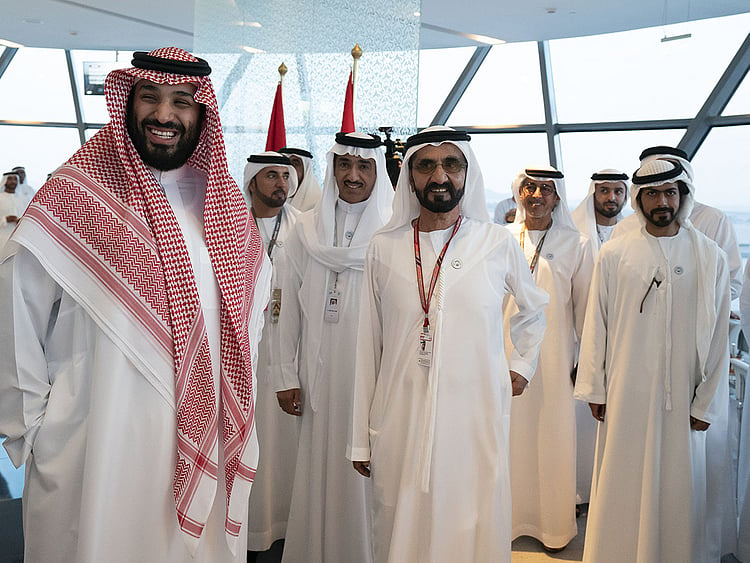By Mohamed Al Asoomi, Special to Gulf News
There is no doubt that Saudi-UAE cooperation differs from all other forms of Arab collaboration and coordination. Within a short span, this alliance has developed to become the defining factor of many economic, political, military, security and strategic trends in the region, which in turn has restructured the balance of power in the Arabian Gulf.
This means there is a large and rapidly emerging power that rests on solid foundations - both economic and political alliance - and which will determine the course of future developments in regional and global stability. The strategic agreements resulting from the Saudi-UAE Coordination Council have so many important aspects - but we will address the economic dimension.
Tightly knit
The state of the economy is one of the key pillars of a rising power, and this influence is growing by the day thanks to annual biletaral meetings, the second of which was held last week in Abu Dhabi. Integration is moving steadily towards creating an influential economic entity.
The trade exchange between the two countries is expected to double this year to $40 billion compared to last year’s volumes. This is a clear indication of the countries’ will to implement what is agreed upon, with the participation of the public and private sectors.
At the same time, the number of Saudi projects in the UAE grew to 206 backed by the presence of 2,366 Saudi companies operating in the UAE with investments worth $10 billion, compared to 114 Emirati projects in Saudi Arabia with capital of $4 billion.
Reach for new highs
The new agreements signed as part of the “Strategy of Resolve” will surely take the relationship to unprecedented levels. Currently, 44 joint strategic projects in the industrial and service sectors, renewable energy, petrochemicals, agriculture, artificial intelligence, military industries, food security, space and infrastructure are underway with investments worth $150 billion.
The sides have signed 11 memorandums of understanding and 20 agreements with definite timelines to ensure their implementation under the supervision of concerned department and authorities. The tourism sector is another important aspect of this cooperation.
The UAE is one of the most important tourist hubs in the region, while Saudi Arabia has announced mega projects. The two sides agreed to implement a joint visa scheme next year, which will allow easier travel between the countries.
Reshape global influence
Foreign investments have also been taken into account. This would give the alliance a powerful negotiating and political sway in international relations. Just recently large joint investments were announced in India for an oil refinery.
While both countries’ external cooperation include coordinating foreign economic policies, especially oil-related ones, a joint council has been set up to coordinate foreign investments. The UAE and Saudi Arabia produce 15 per cent of world’s total oil production and hold 23 per cent of the world’s oil reserves.
Their cooperation is reshaping the balance of power in the region, including in the economic sector. The GDP of the two countries is currently at $1 trillion, making it the world’s 15th largest economy.
However, implementation of the joint projects prescribed in the Strategy of Resolve, GDP volumes will go up again, making them the 10th largest economy by 2025.
Internally, cooperation will result in very evident outcomes. It will accelerate growth, providing for more jobs, diversification, and the creation of a global economic power. It will have all the pillars needed for success, including a relatively large market, sizeable financial and natural resources, a young and qualified manpower and advanced infrastructure, as well as the mutual trust and ability to make changes.
Sign up for the Daily Briefing
Get the latest news and updates straight to your inbox
Network Links
GN StoreDownload our app
© Al Nisr Publishing LLC 2026. All rights reserved.
